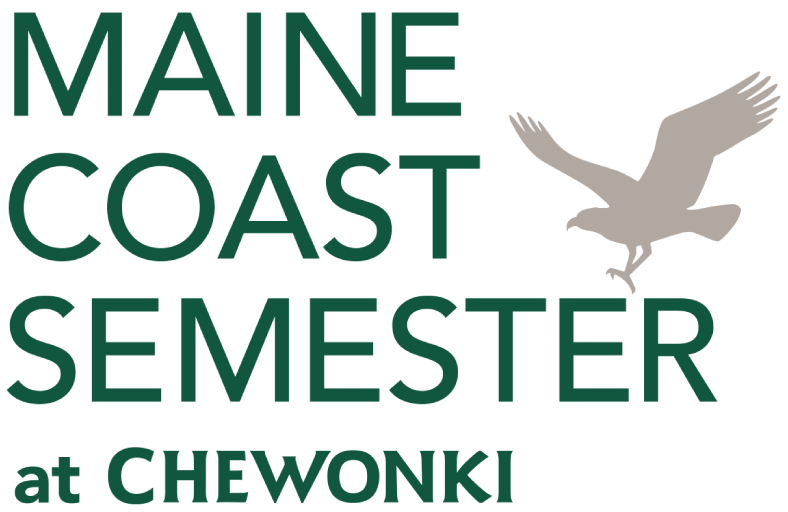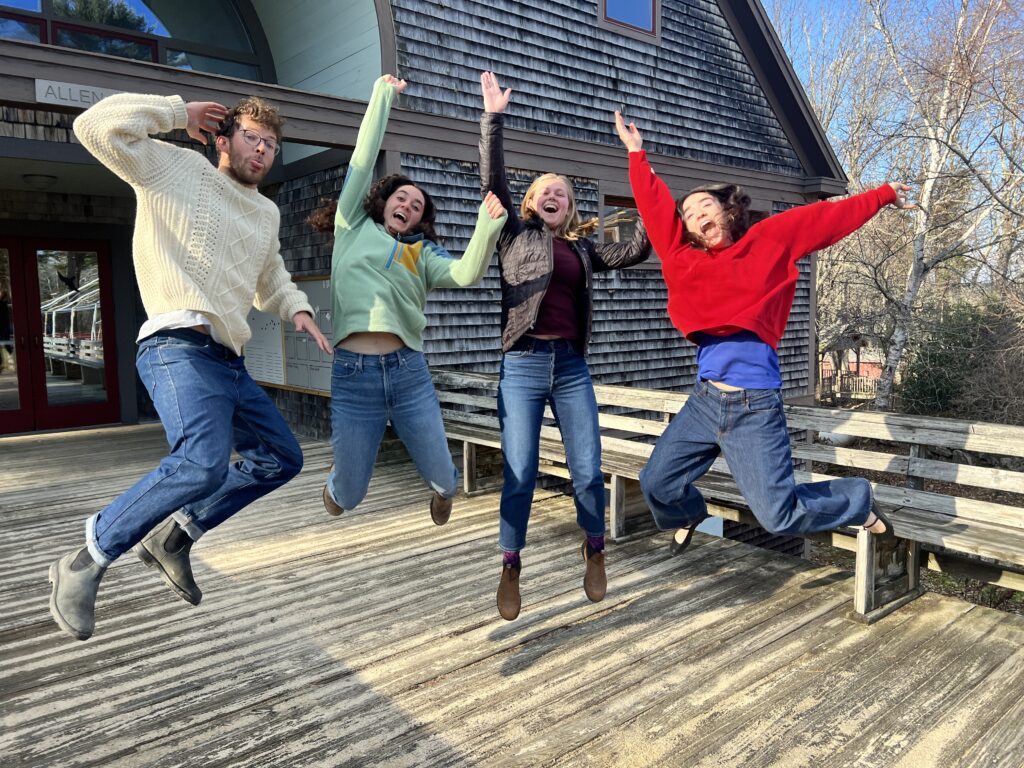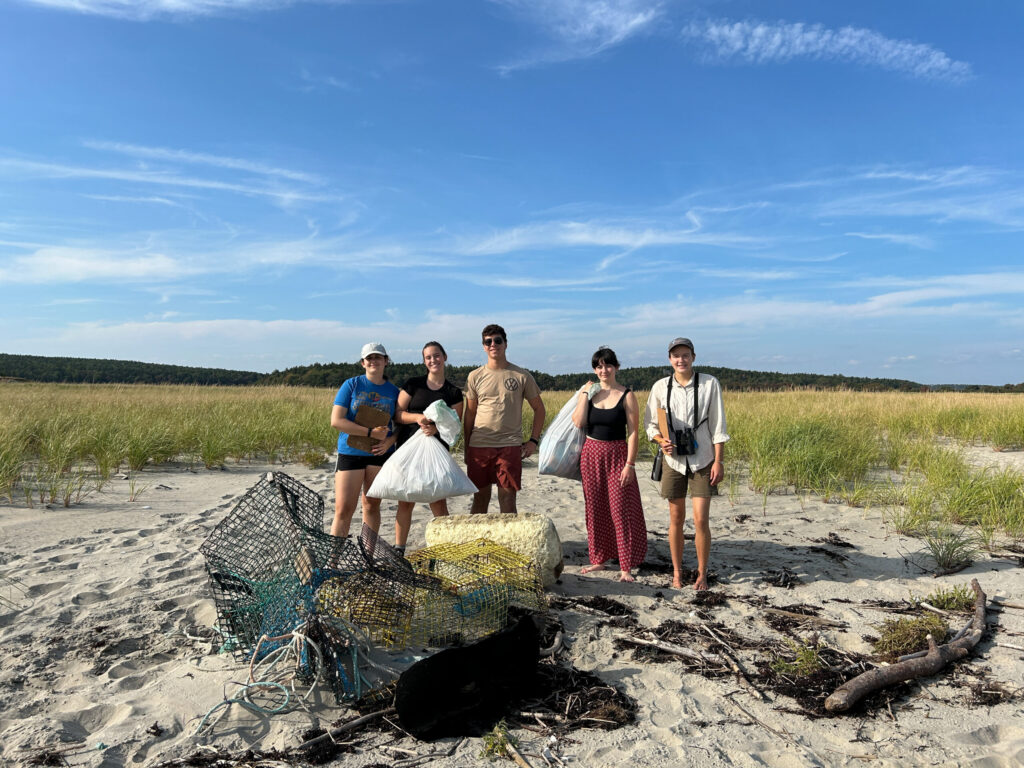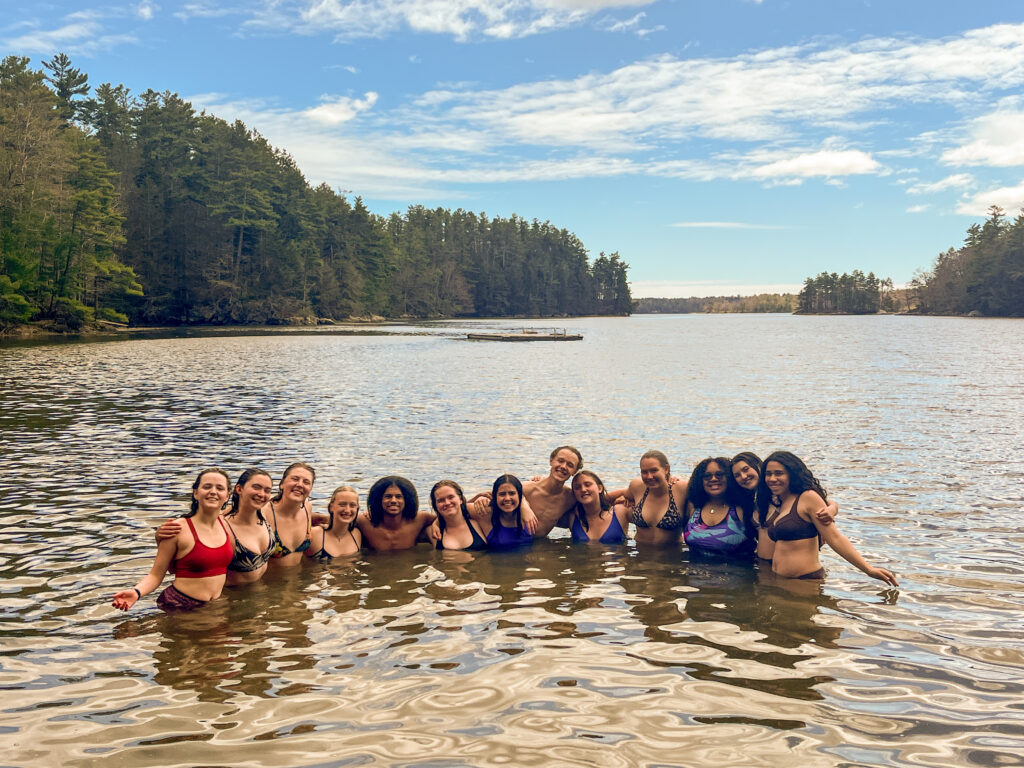A native of landlocked Colorado, Reid Hill’s love of surfing began on family vacations. Wherever they traveled, his father would find waves, and taught Reid and his brother to surf when they were just seven years old. So when Reid arrived at Maine Coast Semester last fall for semester 59, he was excited to take his interest in surfing further for his Human Ecology Capstone (HEC) project.
Human ecology is the study of human interaction with the natural world, and capstone projects allow semester students to explore a topic of deep, personal interest, come to understand it in a holistic way, and propose a viable course of action. After spending the semester studying ecology and environmental issues, Reid decided to use his HEC project to explore the environmental consequences of the commercial surfboard industry. Through his research, Reid learned that mass-produced surfboards are made from foam, plastics, wax and fiberglass, which slowly degrade with use. As surfboards breakdown, these plastics and chemicals collect in the ocean and negatively impact marine ecosystems.
As an alternative to these toxic, commercially produced surfboards, Reid decided to shape his own eco-friendly board in the Chewonki wood shop. With the help of his advisor, Eric McIntyre, who is an excellent woodworker in addition to being our semester science fellow, the project began to take form. Reid also consulted with Grain Surfboards of York, Maine, a small surf shop with a commitment to environmental sustainability. The result was a smooth, sandy-colored board made from native Maine eastern white pine. Although it’s slightly heavier than a foam board and Reid says it’s far from perfect, he also wouldn’t do anything differently. “I learned so much from my mistakes.”
After the end of his semester, Reid decided to store the board in the basement of the farmhouse, thinking he could collect it when he was back in Maine this summer. But when he heard about summer positions at Chewonki’s Salt Marsh Farm, he jumped at the chance to return as a farm assistant. Since arriving back at Chewonki two weeks ago, Reid has been back in the wood shop finishing up fins for his surfboard, which are made of recycled wood scraps from the shop. The last step is to test it out!
Reid says he’s put the board in at Chewonki’s waterfront, so he knows it at least floats. Megan Phillips, Chewonki’s farm manager, has arranged for Reid to meet up with local surfing enthusiast and former Chewonki wilderness trip leader Ryan Linehan later this summer to take the board for a test drive at Popham Beach.
Reid is excited to continue working on sustainable surf products after he leaves Chewonki in August. After consulting with Grain Surfboards for his HEC project, the company invited him to complete a short internship later this summer. After, Reid will head back to Shining Mountain Waldorf School in Boulder, Colorado for his senior year. Reid says he’s already planning ahead for his senior project as well – two, eco-friendly hand planes, which are like miniature surfboards bodysurfers strap to their hands to aid in maneuverability. The project is currently in its early stages, also in the Chewonki wood shop.
“For me, Maine Coast Semester showed me the path I wanted to take in the future,” says Reid. “I loved going to school here, and I want sustainability to be part of my life.”
We will post an update later this summer of Reid testing his board out at Popham Beach!














